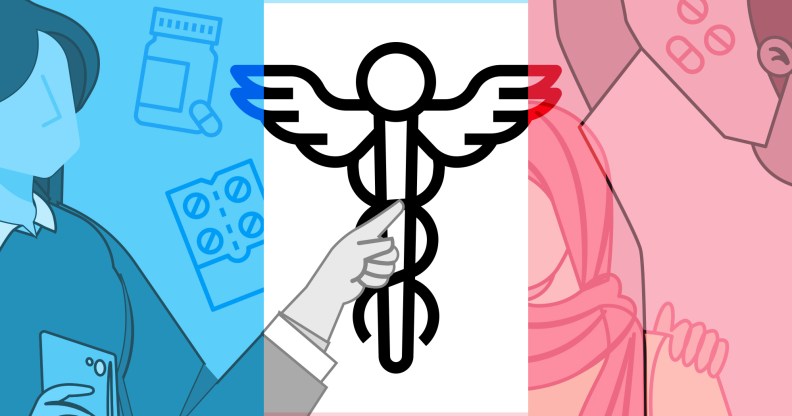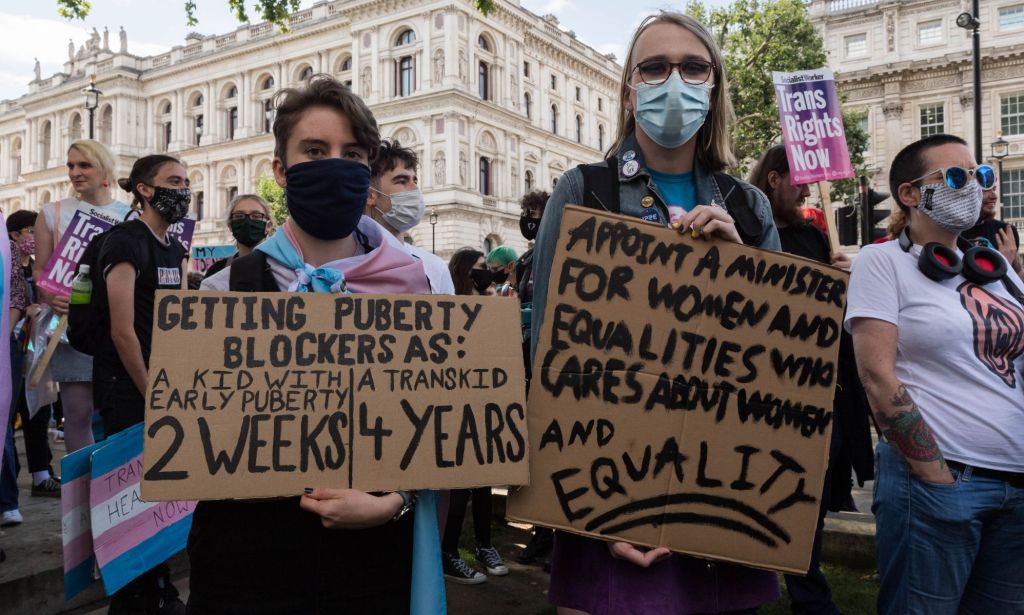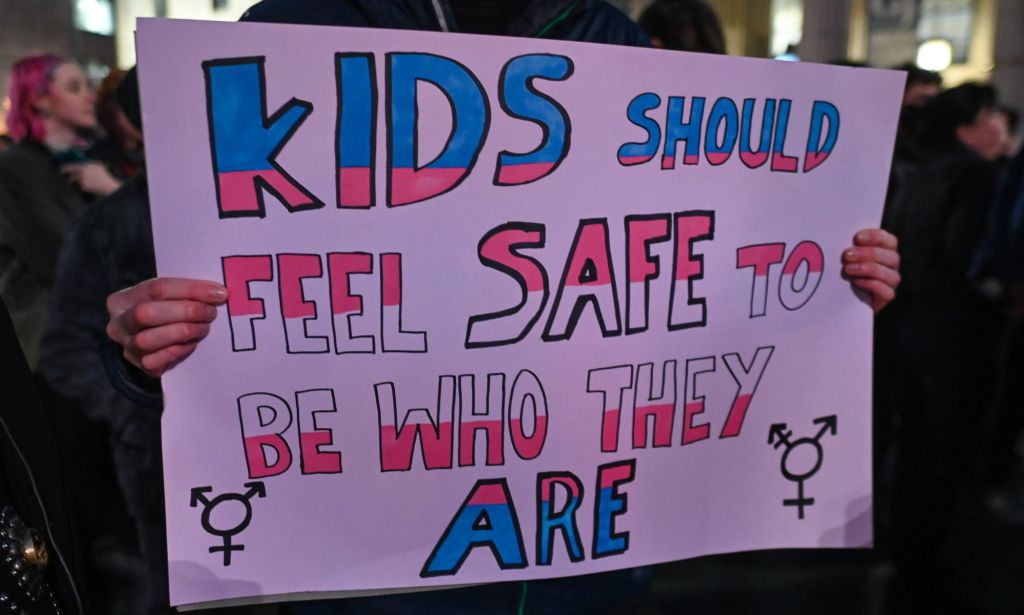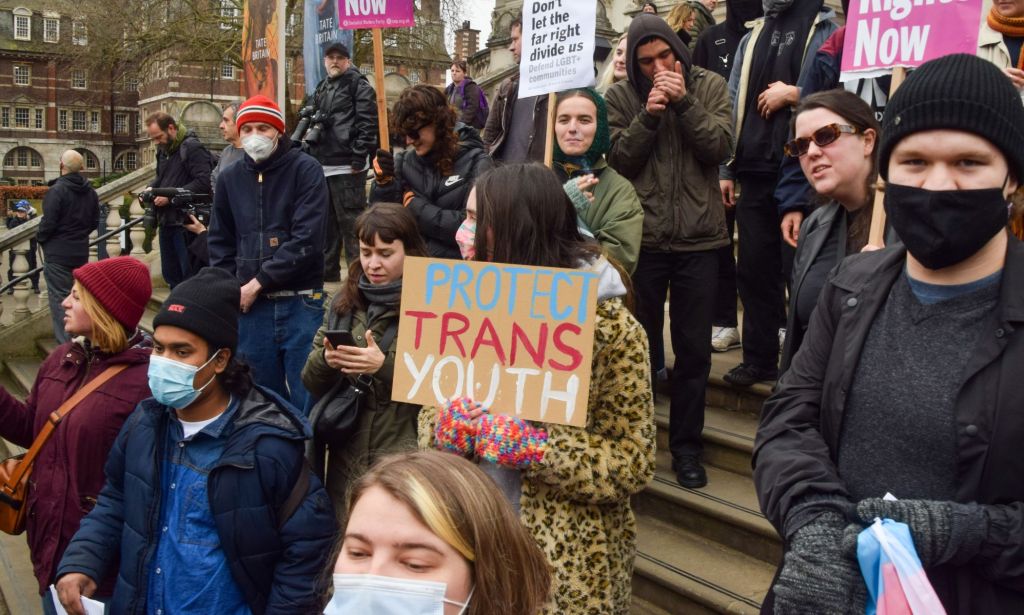Why the Tavistock gender clinic is actually closing – and what it means for young trans people

The Tavistock provides care for young trans and questioning people. (PinkNews)
The Gender Identity Development Service (GIDS) at the Tavistock was a groundbreaking institution when it was established as NHS England’s sole provider of care for trans and gender-questioning young people in 1989.
But as the years wore on, cracks began to develop on the surface, exposing faults in the way the NHS treats trans youth healthcare. Waiting lists spiralled, with young people now forced to wait years before they can see a specialist.
Eventually, it was decided that having a single provider of trans youth care across the country wasn’t safe or sustainable. Last July, NHS England announced the Tavistock clinic would be shutting down by spring 2023, to be replaced by at least two regional service centres. The move came after GIDS was criticised in an independent review led by Dr Hilary Cass, who called for care to become more integrated and more easily accessible.
However, as the closure date looms, there are reportedly no locations, staff or services yet in place. This has left thousands of trans youth and their families in limbo as the future of gender-affirming healthcare through NHS England.
The decision to close GIDS was designed to improve access to gender-affirming care for young people – however the press have continued to frame the decision as a win in their war on trans lives.
For years, media outlets have made GIDS the target of criticism and salacious claims. News of the closure prompted a wave of celebratory and misleading headlines, prompting Dr Cass to issue a statement in support of GIDS. Nonetheless, as recently as February 2023 a Telegraph columnist heralded the clinic’s closure as the “beginning of the end for the cult of trans”
Whether it’s healthcare, sport or participation in society, the existence of trans people continues to be a source of toxic discussion in the British press, and Tavistock has been swept into that furore.
Here’s the truth about why the Tavistock clinic is closing, and what happens next.
Why is the GIDS clinic closing?
NHS England decided to close the clinic after an interim report from Cass concluded that a “single specialist provider model is not a safe or viable long-term option in view”.
Over time, GIDS clinic has weighed under the strain of increased demand for services for trans under-18s in the UK.

Approximately 210 trans youth were referred to Tavistock’s GIDS in the 2011-12 financial year. Just 10 years later, that number had risen to 3,500 people, in 2021-2022.
GIDS has failed to match the increased rate of referrals, resulting in overlong waiting lists. Despite anti-trans voices often claiming that young trans people are being rushed into treatment, the basic fact is that a young person must wait years for an initial appointment with the clinic.
At the end of May 2022, Tavistock’s GIDS reported there were over 5,035 people on its waiting list. Young people seen for the first time that month waited on average 1,066 days for a first appointment – just under three years.
In September 2020, NHS England commissioned a review to consider the “several aspects of gender identity services” with a focus on “how can can be improved for children and young people”.
The interim Cass report said a “fundamentally different service model is needed” which is more in line with “other paediatric provision, to provide timely and appropriate care for children and young people needed support around their gender identity”. This would be more holistic, moving away from the siloed care currently given at GIDS.
What is going to replace it?
In the interim Cass report, it was suggested that NHS England go ahead with establishing regional services instead of a “single highly specialist service”.
The review said expanding the number of providers would have the advantages of: creating networks in each area to improve early access and support; reducing waiting time for specialist care; and developing a specialist network to ensure shared standards of care.
NHS England took up the advice, announcing plans to replace GIDS with “Early Adopter services” run by specialist children’s hospitals in the North West and in London. It said these services would provide a more “holistic localised approach” to trans healthcare for young people.

Some LGBTQ+ campaigners initially saw the new regional model as a positive. Parents told PinkNews that they had less than optimal experiences with GIDS, describing it an “absolutely broken institution”. Regional services would allowing young people to see gender specialists without needing frequent trips into London was widely welcomed.
Both will be led by children’s hospitals, with support from the Tavistock and Portman NHS Trust and hormone specialists in London and Leeds. The NHS has said that the pilot services represent “just a first step in commissioning a national network of regional services across the country over the coming years”, with around seven to eight expected.
The NHS said: “The ongoing work of Dr Cass’ review, alongside our experience in establishing the Early Adopter services, will help shape the development of the new model of care, national standards, and a new national service specification against which regional services can be commissioned. We will engage and consult fully on this service specification in due course.”
The new services will also enrol young people prescribed puberty blockers into a “formal research protocol in view of the limited research on short-term and long-term outcomes”, following Cass’ advice.
What problems have come up since?
NHS England had been largely quiet on the future of its gender-affirming services for trans youth after announcing GIDS’ closure.
This led to many people being concerned about their future healthcare, with unanswered questions on how service users as well as those on waiting lists would be transferred to new services without leaving anyone worse off.
Then, on 6 February, several NHS doctors told Vice World News that there had been no progress on setting up the new regional centres. Three doctors said the current deadline of spring 2023, and even an extension into June, are “totally unachievable”.
“There are no employees signed up to move, there is no training for wider NHS staff, and our waiting lists are paused,” a senior doctor said.
“The reality is that we have to accept there is currently no NHS service for transgender young people, and there is unlikely to be any service made available to them in the near future.”

The senior doctor worried there would be “difficult years” ahead for trans kids with “no support” and wanted to prepare them to “get into adult services when they hit 18”.
In the wake of the report, GIDS staff published an open letter to NHS England, detailing their concerns about the future of trans healthcare for kids. The staff highlighted the interim Cass report “did not recommend that GIDS should be closed” – rather, it said that the “current model of single national provider is not fit for purpose”.
They also wanted to understand the “rationale for closing the current provision before new, regional provisions have been established”.

The staff believed the decisions made by NHS England are in “direct contradiction to their stated commitment to improve and expand services, as well as to stabilise current services”.
“We are aware that [NHS England] made a commitment to start opening Regional Hubs in September 2021, but they never materialised,” the letter read.
It continued: “Despite these issues, [NHS England] have stated that new services will be up and running to take on the waiting list of over 7,000 young people as well as our open caseload by Spring 2023.
“They state that there will be ‘a smooth and seamless transition for patients to the new Early Adopter services’. We are unclear how this will be safely achieved within the timeframe.”
The lack of movement from NHS England on establishing regional centres was devastating news to the thousands of young people and their families currently awaiting treatment.
Many trans people in the UK have been forced to go private to access timely treatment. With waiting lists remaining painfully long, it’s unlikely the impact of the new hubs – if and when they open – will be felt for some time.
How did this story make you feel?

